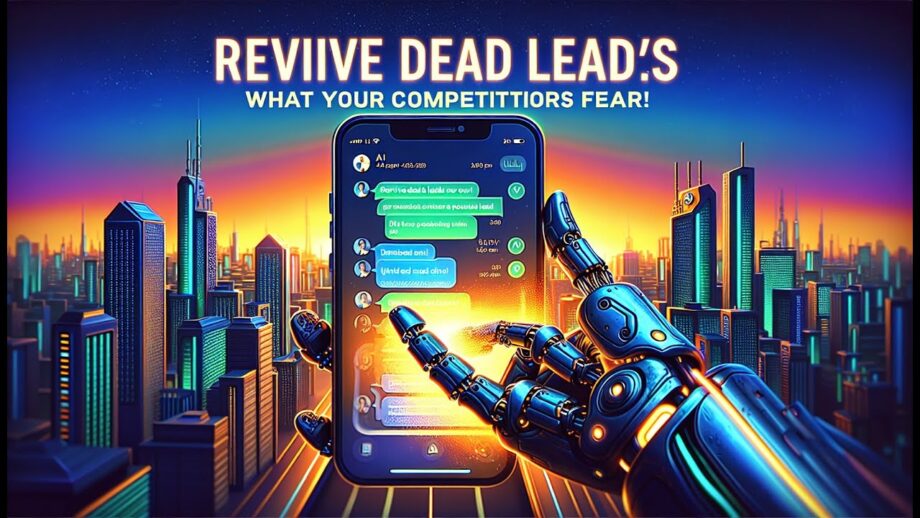Reviving Dormant Sales Leads Using AI: A Guide to Database Reactivation
#Engage #Dead #Sales #Leads #Database #Reactivation
Test Drive The Sales Android https://mayhall.agency
Regen to the rescue, click the link above for a Free Trial.
Customization: AI-driven lead generation systems are equipped with machine learning capabilities that allow them to tailor their approach based on the data they collect. Over time, they can refine their targeting strategies to better match the profiles of your ideal customers, which can increase conversion rates. The algorithms can analyze past interactions to understand which types of leads are more likely to convert, and then prioritize similar prospects in future campaigns.
Data-Driven Decisions: AI tools provide valuable insights by analyzing large sets of data that would be impossible for humans to process in a reasonable timeframe. They can identify trends and patterns in customer behavior, market shifts, or engagement levels, enabling businesses to make informed decisions about where to focus their efforts. This data-centric approach helps in optimizing marketing strategies and resources for better returns on investment.
Enhanced Customer Experience: AI can also enhance the customer experience by providing timely and relevant content to potential leads. For instance, chatbots powered by AI can engage visitors with personalized conversations and recommend content or products based on their browsing behavior. This level of interaction ensures that potential leads feel valued and understood, which can positively influence their decision-making process.
Cons:
Technical Complexity: Implementing an AI-powered lead generation system requires a certain level of technical expertise. Businesses may face challenges in integrating these systems with existing CRM and marketing automation tools. There might also be a steep learning curve for staff members who are not familiar with AI technology, which could lead to resistance or misuse of the system.
Dependence on Data Quality: The effectiveness of AI in lead generation is heavily dependent on the quality of data it receives. Poor data quality can result in inaccurate targeting and wasted efforts. It’s crucial for businesses to ensure that they have robust data collection and management processes in place before relying on AI for lead generation.
Overreliance Risk: There’s a risk that businesses might become too reliant on AI for lead generation, potentially neglecting the human element that is often necessary for closing sales. While AI can identify and nurture leads up to a certain point, human interaction is often required to understand complex needs and negotiate deals. Balancing automated processes with personal touch is essential.
In conclusion, while AI-powered lead generation offers numerous advantages such as scalability, time savings, enhanced visitor capture, and improved efficiency, it’s important to approach it with a balanced view. The potential drawbacks like impersonal interactions, the need for ongoing campaign refinement, and quality concerns must be managed carefully. Businesses should strive for a harmonious integration of technology and human insight to maximize the effectiveness of their lead generation strategies.
Click here to learn more about this YouTuber
The content discusses the benefits of using artificial intelligence in healthcare, such as improved diagnostics, personalized treatment plans, and enhanced patient care. AI can analyze large amounts of medical data to provide more accurate and efficient diagnoses, predict outcomes, and tailor treatment options to individual patients. It can also assist healthcare providers in streamlining administrative tasks, reducing errors, and improving overall efficiency. Despite some challenges and concerns regarding data privacy and security, the potential of AI in revolutionizing the healthcare industry is significant and promising. With continued development and integration, AI has the potential to greatly improve patient outcomes and the overall healthcare experience.
